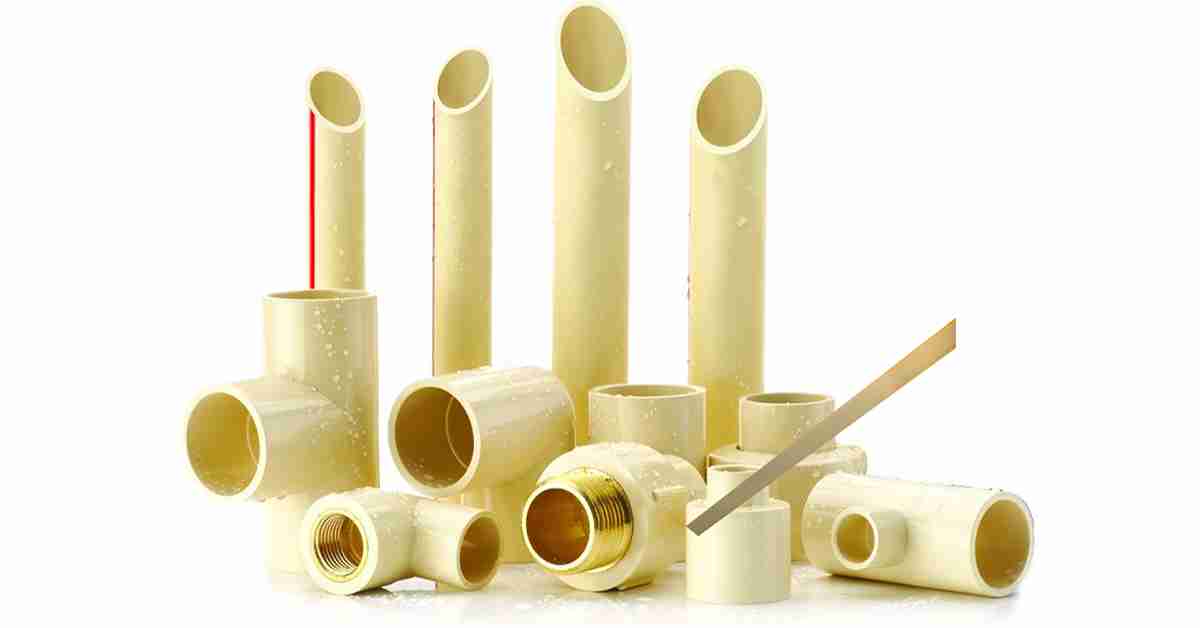Choosing the best pipe for your residential and commercial work can be a daunting task since there are a lot of varieties present in different segments; this might confuse the buyers, particularly the first-time buyers, since a number of pipes are available in a diverse set of sizes and materials. We must select the appropriate one on the grounds of durability, performance, and safety local codes offer. These sections will lead you to select the best piping solutions for your projects.
What Are the Types of Pipes?
Among the various types of pipes, they include:
PVC (Poly Vinyl Chloride):
- Lightweight, corrosion-resistant.
- This is enabled for drainage, waste, and vent systems, yet negated for any hot water functions.
CPVC (Chlorinated Polyvinyl Chloride):
- Usually recognized as having gotten a higher temperature rate than PVC.
- Hot water distribution usually is its application.
- Uses specialty fittings and solvents.
PEX (cross-linked polyethylene):
- Flexibility and ease of installation mark this.
- Scale and chlorine resistance.
- Used in hot and cold water supply applications.
Copper:
- Reliable and durable.
- It has a good rate of thermal conductivity.
- Can typically be used for plumbing and heating.
Galvanized Steel:
- Firm but long-lived.
- Resistance to corrosion but is bound to rust when subject to air conditions over time.
- Usual ability, hence water supply lines.
Cast Iron:
- Durable enough, generally applied to drainage.
- Good properties for sound damping.
- Heavy; therefore, installation would be tough
Why Is Choosing the Right Pipe Important?
Selecting the right pipe materials impacts several factors:
- Durability: Different materials have different lifespans and also different resistances to environmental aspects.
- Cost: The initial cost and long-term maintenance costs can vary from one pipe cousin to another.
- Functionality: The right pipe does allow quick flow of water while at the same time minimizing leaking and bursting.
- Compliance: Local building codes frequently dictate which materials are approved for specific uses.
How To Make The Right Choice For Pipe?
1. Identify the function.
This entails studying the intended use of the pipes; below are a couple of purposes:
Water supply: In the case of drinking water, always use PEX or copper.
Drainage: Another piped system is a drainage system, which is commonly made of best PVC pipe in Kerala and cast iron.
Heating systems: CPVC or copper pipes are an ideal solution for hot water systems.
2. Consider the environment.
Different environments will decide which materials are appropriate:
Indoor versus outdoor use: While PEX is generally used indoors, PVC is more suitable for outdoor applications; hence, it is UV resistant.
Temperature: If the pipes will be exposed to very high or low temperatures, select materials that can withstand both conditions, e.g., CPVC for hot water.
3. Revisit the Local Building Codes.
Always check local building codes and regulations, as it may be stipulated that:
- Materials used
- Relationship of sizes of pipes
- Methods of installation
4. Determine the Diameter and Flow Rate
The size of the pipe matters most for good performance. ISO considers:
Flow rate: this is the rate of flow required for your particular application.
Pipe diameter: use the right diameter to create adequate flow without undue loss of pressure.
5. Assess Other Costs
While preparing budgets for the project, always factor other costs, such as:
- The price of installation
- Costs of maintenance and repairs
- Lifespan of the materials
6. Seek Advice
In case of any doubt, consult with a professional plumber, who may have very important comments to make. Some of the things they will be able to assist you in include:
- Choosing the good materials for your work
- Working within the local codes
- Giving tips and good practices for installation
The Advantages of Choosing Pipes Rightly
- Greater life: good materials mean minimal repair and replacement.
- Efficiency: the right diameter and properly installed pipes enhance flow and lower energy costs.
- Safety: good materials ensure safety and reliability in plumbing systems.
Conclusion
A good selection of the best pvc pipe in kerala ensures the long-term performance of a home or commercial installation. Familiarize yourself with the different types of pipes available, their applications, and appropriate consideration of costs and local regulations to form the basis for accurate choices. Keep in mind that good professional advice goes a long way in assisting you to get through this picky task.
Selecting the right materials and sizes could save much trouble in the long run and actually save you money while ensuring a dependable plumbing system.


